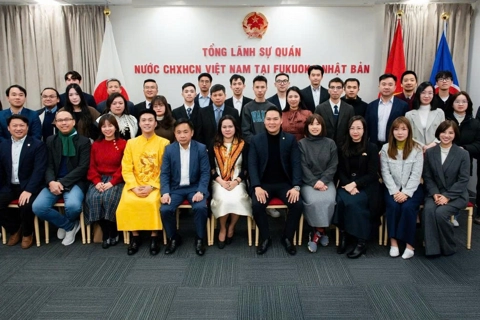Japan rejects China’s claims in South China Sea
Japan is the 10th country rejecting China’s maritime claims in the South China Sea (called East Sea by Vietnam) following Malaysia’s initial role with a Note Verbale submitted in December 2019.
The Permanent Mission of Japan to the United Nations has rejected China’s maritime claims in the South China Sea, lengthening list of countries protesting Chinese expansionism in the resource-rich sea.
| Japan conducts Indo-Pacific deployment training. Photo: Japan Maritime Self Defense Force (JMSDF) |
By a Note Verbale, Japan rejects China’s position that the “drawing of territorial sea baselines by China on relevant islands and reefs in the South China Sea conforms to UNCLOS and general international law” following Chinese Note Verbale No. CML/63/2020.
The United Nations Convention on the Law of the Sea (UNCLOS) sets forth the conditions for the application of baselines in a specific and exhaustive manner, whereas China has failed to invoke the relevant provisions of UNCLOS in asserting the lawfulness of the baselines in question, showed the diplomatic note.
“There is no room for a State Party to justify the application of baselines that do not satisfy the conditions stipulated under UNCLOS,” stated the note.
As a matter of fact, China protested the overflight of Japanese aircraft in the airspace surrounding Mischief Reef and attempted to restrict the freedom of overflight in the South China Sea.
China’s Note Verbale No. CML/63/2020 was submitted to the UN in September, 2020 in response to Notes Verbales against Beijing’s claims in the sea lodged in the same month by France, Germany, and the UK or EU Three.
Japan is the 10th country rejecting China’s maritime claims in the South China Sea following Malaysia’s initial role with a Note Verbale submitted in December 2019.
Experts called the process a “lawfare”.
Emeritus Professor Carl Thayer, a veteran Southeast Asia expert, said in the case of the UN Commission on the Limits of the Continental Shelf (CLCS), a note verbale sets out a state’s official legal position on claims for an extended continental shelf. If a state fails to respond to a claim, this could be taken as evidence that the state acquiesced.
If the CLCS ruled in favor of Malaysia, this would be a huge blow to China’s legal position not to say China’s prestige, Prof. Thayer said.













